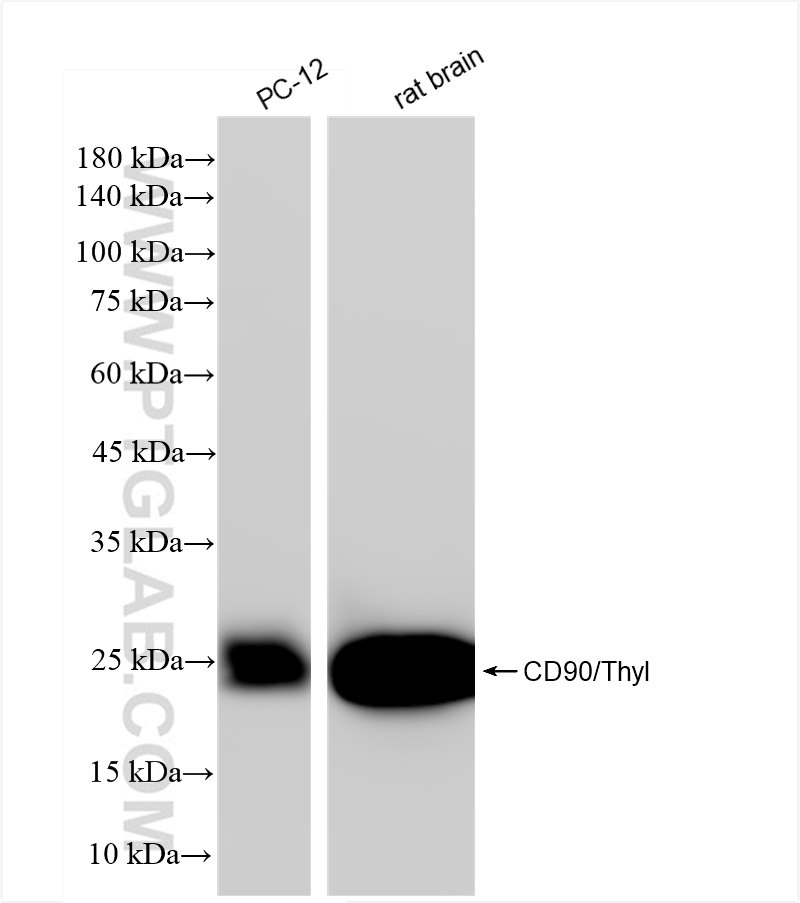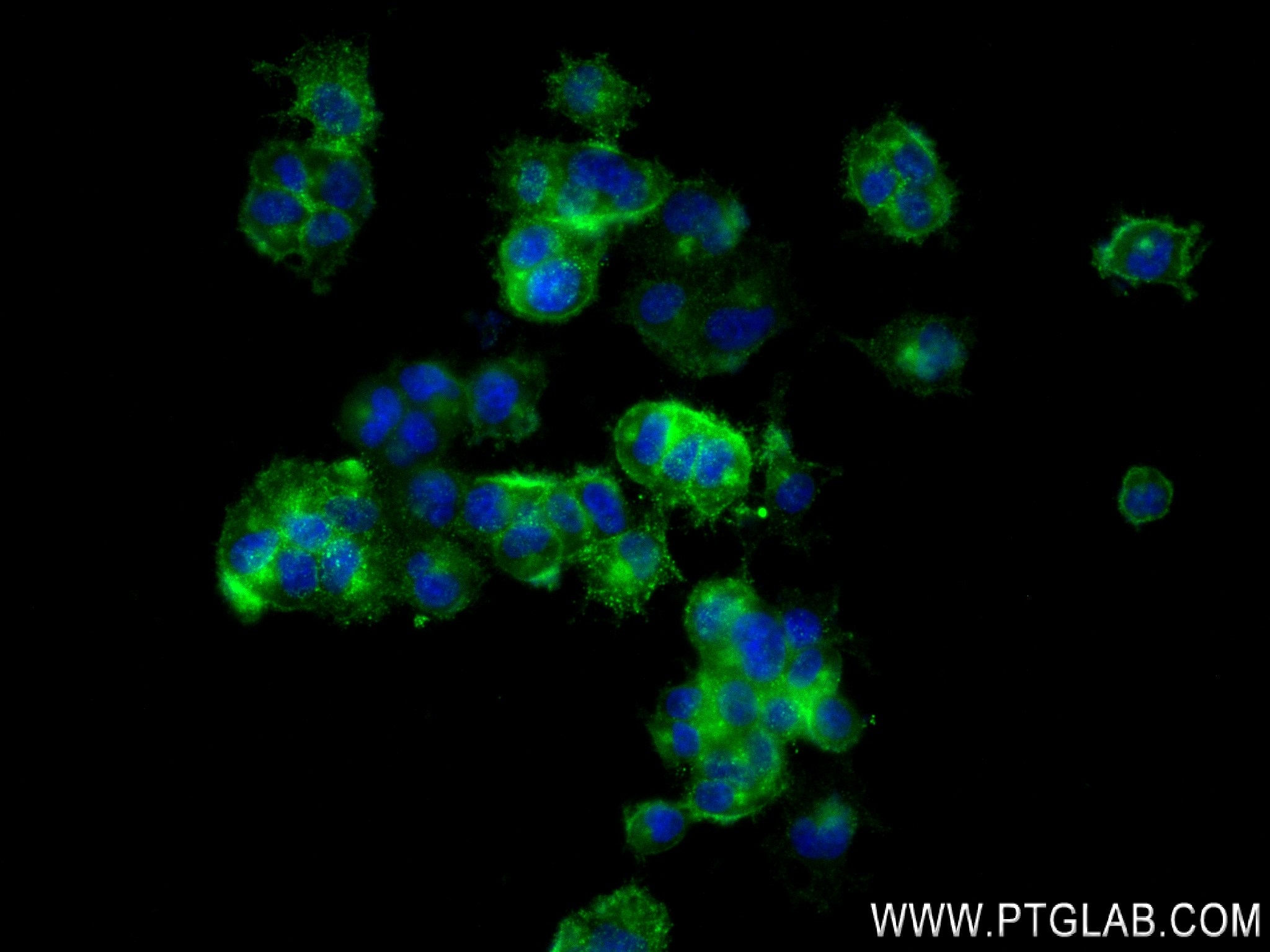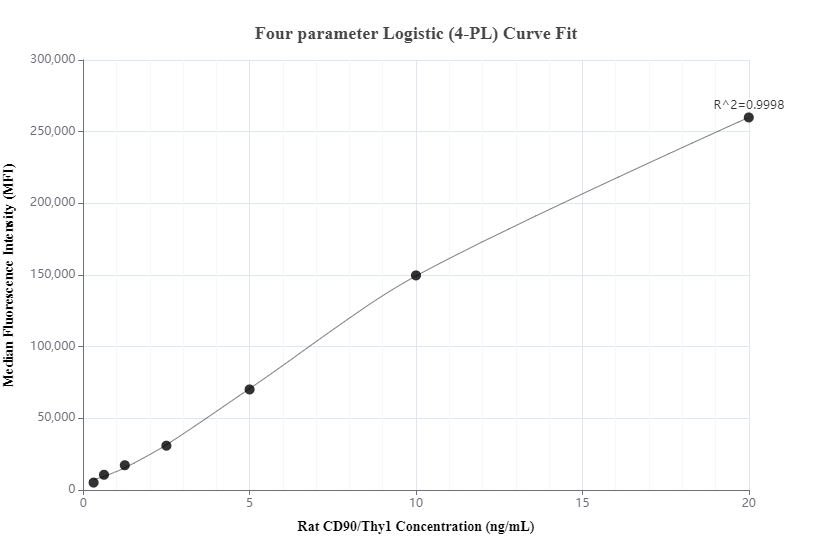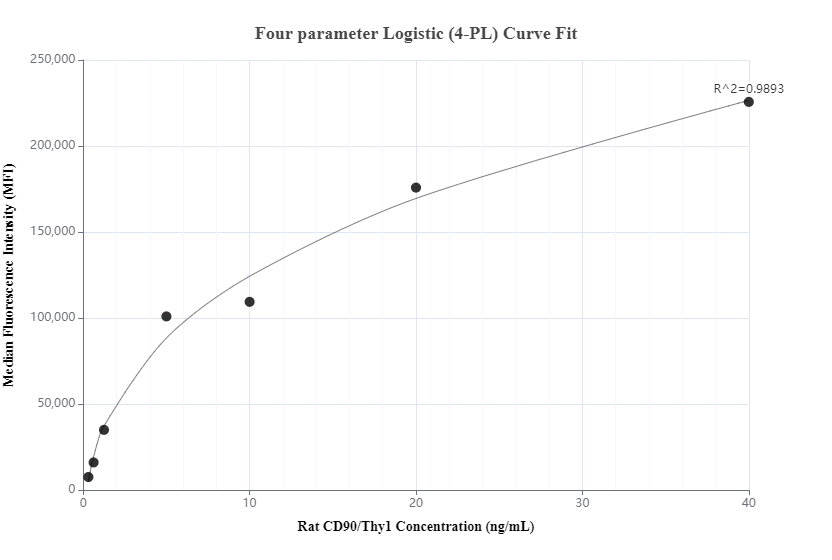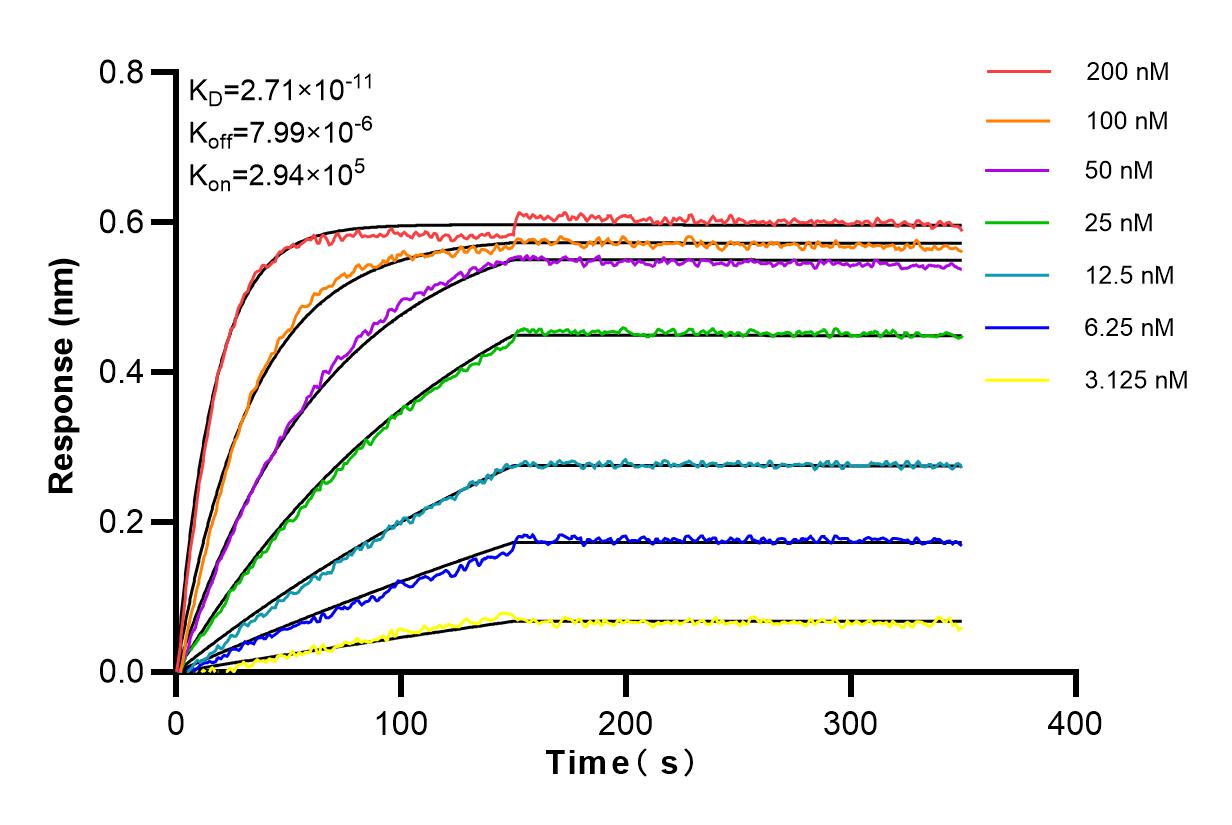Rat CD90/Thy1 Recombinant antibody, PBS Only (Capture)
CD90/Thy1 Uni-rAbTM Recombinant Antibody for WB, IF/ICC, Cytometric bead array, Indirect ELISA
Host / Isotype
Rabbit / IgG
Reactivity
rat
Applications
WB, IF/ICC, Cytometric bead array, Indirect ELISA
Conjugate
Unconjugated
CloneNo.
241388E2
Cat no : 84206-3-PBS
Synonyms
Validation Data Gallery
Product Information
84206-3-PBS targets CD90/Thy1 as part of a matched antibody pair:
MP01132-1: 84206-3-PBS capture and 84206-1-PBS detection (validated in Cytometric bead array)
MP01132-2: 84206-3-PBS capture and 84206-2-PBS detection (validated in Cytometric bead array)
Unconjugated rabbit recombinant monoclonal antibody in PBS only (BSA and azide free) storage buffer at a concentration of 1 mg/mL, ready for conjugation. Created using Proteintech’s proprietary in-house recombinant technology. Recombinant production enables unrivalled batch-to-batch consistency, easy scale-up, and future security of supply.
This conjugation ready format makes antibodies ideal for use in many applications including: ELISAs, multiplex assays requiring matched pairs, mass cytometry, and multiplex imaging applications.Antibody use should be optimized by the end user for each application and assay.
| Tested Reactivity | rat |
| Host / Isotype | Rabbit / IgG |
| Class | Recombinant |
| Type | Antibody |
| Immunogen | Fusion Protein |
| Full Name | Thy-1 cell surface antigen |
| Calculated Molecular Weight | 18 kDa |
| Observed Molecular Weight | 25 kDa |
| GenBank Accession Number | NM_012673.2 |
| Gene Symbol | Thy1 |
| Gene ID (NCBI) | 24832 |
| Conjugate | Unconjugated |
| Form | Liquid |
| Purification Method | Protein A purification |
| Storage Buffer | PBS Only |
| Storage Conditions | Store at -80°C. |
Background Information
CD90, also known as THY1, is a 25-35 kD protein that is expressed on 1-4% of human fetal liver cells, cord blood cells, and bone marrow cells. CD90 is one of the essential surface molecules expressed on human MSC from bone marrow and other sources. Activation of Thy-1 has been reported to promote T cell activation. It also affects numerous nonimmunologic biological processes, including cellular adhesion, neurite outgrowth, tumor growth, migration, and cell death.

